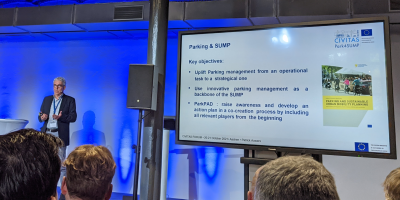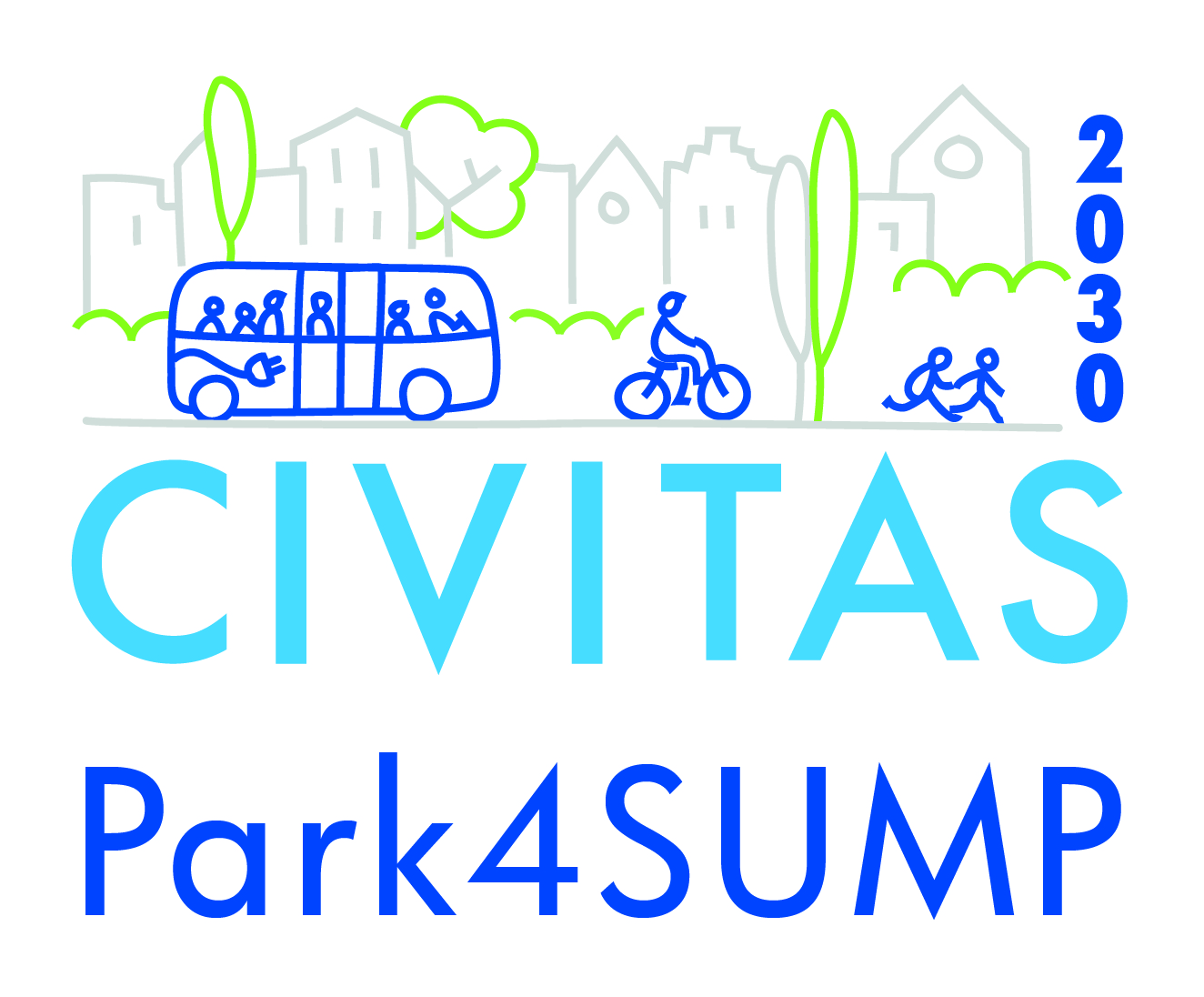Park4SUMP presented solutions for the parking dilemma

Patrick Auwerx (Mobiel21), Park4SUMP project coordinator, shared the success stories of Park4SUMP of tackling one of the biggest hidden problems in European cities: parking. One solution is the integration of a common parking policy into the city’s ‘Sustainable Urban Mobility Plan’ (SUMP). Thus, Auwerx presented this parking aspect in the ‘SUMP session’ of the CIVITAS Forum 2021, which took place from 20-21 October in Aachen, Germany. Additional information and the programme of the CIVITAS Forum is available here.
Even though the vehicles in question are called automobiles, they are mostly immobile for about 95% of the time. Auwerx emphasised this fact by providing an example: ‘a car consumes 40m2 of space, which is equal to 3 parking spaces, as we need one at home, at work and at the third destination, which we are visiting, like a shop or a service’. Thus, cars are ‘privatising’ public space, a scarce good in European inner cities. The four-year EU-funded project of ‘Park4SUMP’ aims to provide solutions to overcome this significant challenge.
The ParkPAD-process – a potential solution
Besides several best practices examples from the participating project cities, which are published in several languages on the project homepage, the ParkPAD process aims to provide a direct support for cities through an auditing process. This is currently developed internally and is planned to outlive the duration of the Park4SUMP project. Auwerx encouraged participants to submit their financial preferences for such an auditing tool via an online survey, which remains available online. The ParkPAD has been tested and evaluated successfully in the 16 Park4SUMP cities and will be promoted across Europe in Spring 2022 to support cities in their efforts to improve their parking and SUMP policies, focussing especially on starter cities with less experience in integrated parking policies.
What rules should cities follow to reduce negative externalities of parking?
The project coordinator emphasised several proven guiding principles, which are based on the local experiences of the 16 cities:
- Avoid further expansion of on-street parking in the city and gradually remove the available on-street capacity.
- Off-street parking should be cheaper than on-street parking.
- Parking should be considered in a ‘sustainable’ way in every built environment project.
- Participatory audit tools, such as ‘ParkPAD’, should be used to discuss and manage a better parking policy, by integrating it into a SUMP.
- Parking revenues should be earmarked for investments into sustainable mobility.
- Parking should be considered a more ‘integral’ policy
